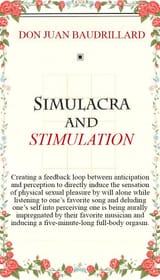>>40969432
These modes inform us of the fundamental architecture of conscious experience: that it is divided into two fundamental modes: instantaneous sense-experience in an omnipresent experiential moment, and cumulative change over time. The mode of cumulative change over time is the mode of past, present, and future, the mode of "Narrative" of which language is the communicative medium. it is the mode of Story, which includes possible futures and thus possible satisfactions and so desire.
Buddhism's observations come greatly from priviledging the mode of immediate experience and at least partially pathologizing the mode of desire - narrative. But Buddhism does give some deep insight into what happens when narrative becomes unhinged from the ground of immediate sense-experience. And Buddhism has developed powerful meditative methodology.
Perception-bending can become profoundly pathological as one can hallucinate whatever religious experience they expect to experience, reinforcing their own beliefs via the hyper-drug of pleasurable oneness with all. You can bend your perception to make yourself feel better than any other drug, pure imagination turned into perception instantly. Now people are using AI to facilitate such loops of delusions, inadvertently prompting AI to take on personas driven to mirror and affirm their desired premises. When Story becomes unhinged from lived experience, the inevitability is disaster. Why? Because it becomes detached from the lives of others, a thing-in-itself accountable only to itself.

